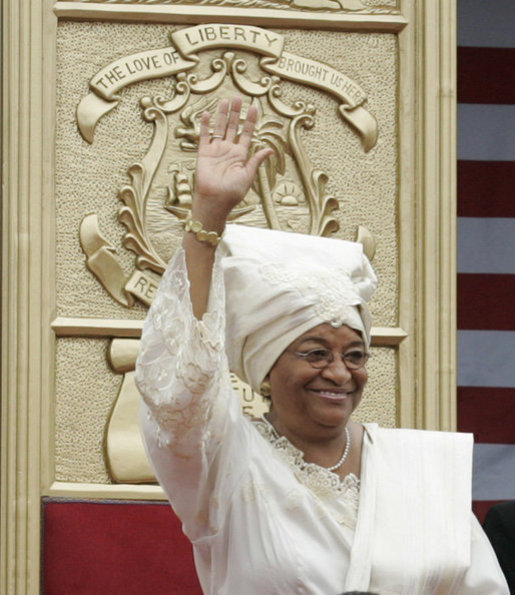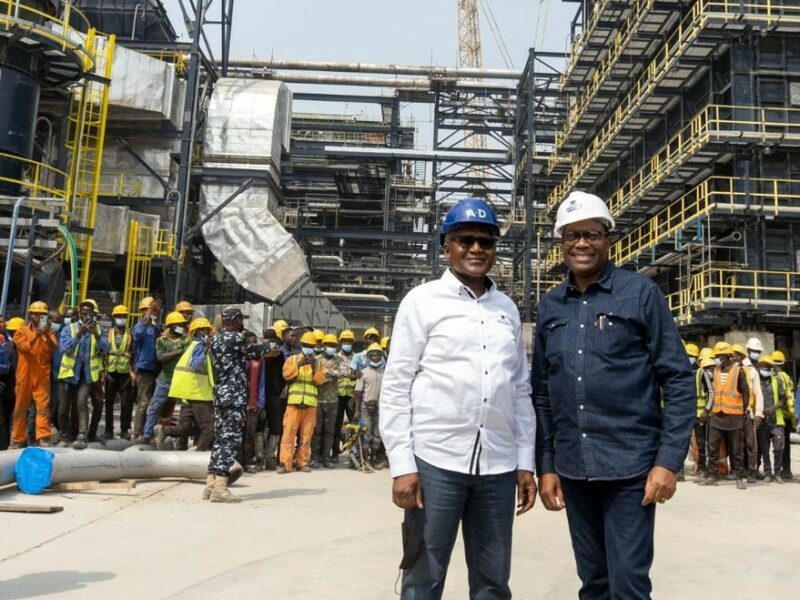Liberia: Global Witness Wants Nocal in Check
An international watchdog Global Witness says it’s uncomfortable with entrusting the management and utilization of Liberia’s future oil revenues into the hands of the National Oil Company of Liberia (NOCA)L.
Barely a week after African Petroleum announced the discovery of oil with commercial value off the cost of Liberia, Global Witness has cautiously warned of the efficient and transparent management of any future oil revenue here, calling for a complete scratch of the current National Oil Company of Liberia (NOCAL) or a significant reform process that could reduce its powers in handling and expending revenue generated in the sector.
“Global Witness does not believe that maintaining NOCAL is the best way for Liberia to manage its oil revenue”, the group has warned, and added that if the country however wants to continue with a national oil company, “the agency’s control over oil revenues should be limited and accountability and transparency safeguards must be built into a robust revenue management system.”
It said by developing such a system, Liberia will be better able to avoid the mistakes of other countries and ensure that oil results to development. Recently, African Petroleum announced a discovery of significant oil deposits in block LB-09.
In a report released here titled, Liberian Oil: Ensuring Revenue for Development, Global Witness said if the discovery by African Petroleum results in production, Liberia’s oil sector could generate a new and substantial source of revenue, but under the country’s current law a large percentage of these new funds will be received by the state-owned National Oil Company of Liberia or NOCAL, “an organization with a history of corruption and fiscal mismanagement.”
The group further noted, that in other countries with a history of poor governance, allowing a national oil company unfettered control over oil revenues has resulted in corruption, budgetary uncertainty and massive waste.
President Ellen Johnson Sirleaf is on record for promising that, “before we export one drop of oil, we will have the policies in place that dictate how oil wealth will be used for development, stability and poverty reduction.”
Global Witness said it has gathered that Government of Liberia in December 2011 called a meeting with her international partners to discuss reforms, including the development of a new petroleum policy and petroleum law, but it expressed skepticism whether civil society was involved in those consultations and added up to the time of the latest brief, it is still unclear what efforts are being taken by government to establish the type of comprehensive, transparent and inclusive reform process so badly needed in the oil sector.
Accordingly, the group has suggested two key issues which it believes should be addressed during any reform process namely, that reformers should consider whether retaining NOCAL is in the country’s best interest and that, if Liberia decides it does want to retain NOCAL, then the country should ensure that the agency does not have principal control over Liberia’s oil revenues and that revenues are managed accountably and transparently.
Global Witness said if Liberia has indeed, retained NOCAL, the government should clearly define and limit the revenue streams under the agency’s control and the country’s reformed petroleum law should also lay down clear boundaries regarding NOCAL’s remit to manage and spend the money generated. It said in other countries, allowing national oil company unfettered control over revenue has proven extremely problematic, citing the case of Angola as an example.
“The years out of civil war, Angola remains a poor country. In 2011, Angola ranked 148 out of 187 in the Human Development Index. However, the poverty of Angola’s populace stands in stark contrast to the country’s oil wealth and, unlike the country at large, Angola’s NOC is doing well. Sonango controls the country’s equity share and production share values, however, much of this revenues has made it to the country’s budget. At the end of 2011, the IMF discovered a US$32 billion discrepancy in Angola public accounts for the years 2007 to 2010”, observed Global Witness.
However, the National Oil Company of Liberia has responded to the concerns raised by Global Witness, noting the transparency is paramount in managing the sector.
“Unless the management of the sector and revenues is subjected to open and public scrutiny there can be no accountability. NOCAL and the Government as a whole are wholly committed to both the principle and practice of transparency in managing any oil discoveries and revenues generated.”
“That will mean strengthening existing procedures like LEITI and auditing, but also introducing new processes where necessary and accountability mechanisms, especially in management of revenue”, a press statement issued here on ‘Governance and Reform Programme’ said.
NOCAL said along with the Government of Liberia, it recognizes the importance of other issues raised in the Global Witness report, including the appropriate institutional frameworks and parameters, the correct fiscal arrangements, the importance of civil society representation, and transparency in the spending of revenues, but added, “These are complex questions, and NOCAL believes that the right way to start to address them is through the open, deliberative and inclusive reform process outlined above, reaching consensus decisions that promote both the best interests of the Liberian public and the ability of the government to leverage oil for rapid yet sustainable development.”
The institution said it is also pursuing other important areas of reform, including clarification of Liberia’s maritime boundary with Sierra Leone, significant capacity building efforts across the government and the oil sector, data management and addressing oversight of health and safety compliance.
Pointing to inclusiveness, it said issues related to oil must be addressed in a way that includes all stakeholders, including civil society, in order to be representative, and assured that the Government and NOCAL are dedicated to making sure that both the reform process, and the processes and structures it produces, are inclusive and representative to the greatest degree possible without inhibiting a government’s ability to govern.
“These principles reflect the evolving priorities of NOCAL and the Government. It is the result of President Madam Ellen Johnson Sirleaf’s steps to improve governance and management of oil, with the appointment of a new CEO and Board of NOCAL to take the sector forward.”
President Sirleaf recently appointed a new President and CEO of NOCAL, Dr Randolph McClain, and named her earliest son Robert Sirleaf, as head of the Board of Directors of the agency, a move that has generated criticisms in some quarters; J. K. Browne reports.
J. K. Browne, New Dawn
Stay with Sierra Express Media, for your trusted place in news!
© 2012, https:. All rights reserved.






